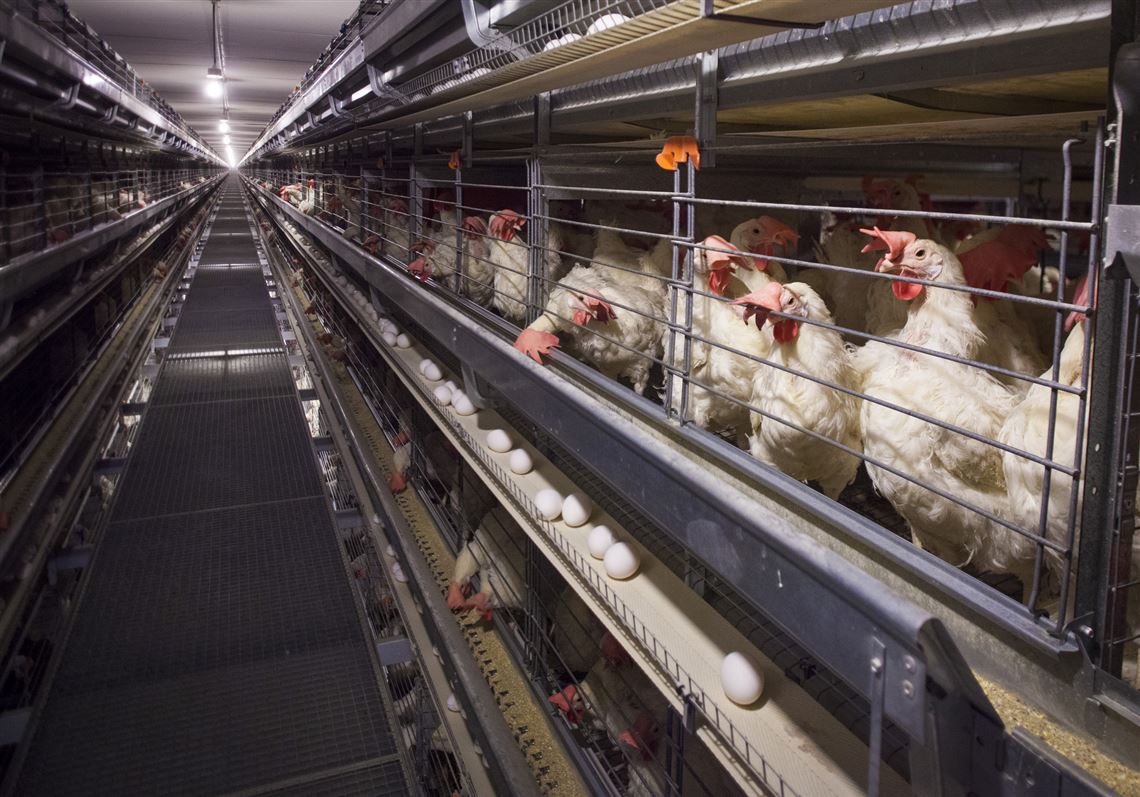Scrambled would be my preference, eggs-wise, and pass the Tabasco, but I’ll defend vigorously any and all of your alternative egg wishes, whether it’s poached, fried, hard-boiled, sunny side up, shady side down, plopped on a burger, Benedictioned, Foo Younged. You do you — no judgment here.
It’s the people who like their eggs inflated that I find so irksome.
The penalty for egg inflation
Lest you think it must be National Egg Week or something — it may be; I don’t know — I only wish this column were about something so benign. But no, we’re off on an eggstreme columnizer’s tangent because this is the week we finally get to hear the penalty for the people who inflate their eggs, specifically the price thereof, mostly the same people who’ve been doing it for decades.
Last week, a jury in the Northern District of Illinois found unanimously that multiple American egg producers conspired to limit the egg supply in order to raise prices, using the same market-rigging practices they’ve deployed since at least 2004.
Such price-tampering methods included exporting eggs to reduce the domestic supply and limiting the number of chickens through various means including artificially limiting cage space, flock reduction, and “early slaughter.”
Pretty sure I saw Early Slaughter one night at Mr. Smalls, but that’s another column.
The result of all that, you’ll doubtless recall, was ridiculously high egg prices Republicans blamed on Joe Biden, the old chicken farmer. More pointedly, it validated what some economists had taken to calling greedflation.
Last March, CNN reported that Mississippi-based Cal-Maine Foods, the largest egg producer in the United States, saw its profits rocket 718 percent in the previous quarter. Profits went from $39.5 million a year earlier to $323.2 million.
Sunny side up indeed.
It’s important to point out here that you needn’t be in the chicken management game to be susceptible to the long-standing corporate inclination to pluck the customers. Although it sure seems to help; Tyson Foods also doubled its profits during the pandemic and is on the hook for a couple hundred million in penalties for illegally conspiring to inflate chicken prices.
Rising prices earn billions
According to a report prepared by the office of Senator Bob Casey (D-Reality), prices for plenty of holiday staples — chicken, pork, potatoes, etc. — are rising faster than inflation, earning billions for corporations with a history of price-fixing, collusion, anti-competitive practices, and boasting about their ability to increase prices without limit. Casey’s previous investigation on this topic said that corporate profits accounted for all the inflation in the first year of the pandemic recover (July 2020 to July 2021) and 41% of inflation overall in the first two years.
In “Stuffing Their Pockets: How Big Food and Agriculture Businesses Are Making Your Holiday Meals More Expensive,” the Senator’s office found that while inflation rose 14% during the pandemic, corporate profits rose five times faster, or 75%. That means a family making $68,000 a year in 2022 paid nearly $7,000 in higher prices “to corporate execs and wealthy shareholders.”
I’ll remember that as I occasionally wonder, “Who are the people in these commercials buying each other Mercedes sedans for Christmas?”
Of course, Bob Casey is no economist, and his findings might be enervated by experts who like to emphasize the inherent “wisdom” of global markets and various micro and macro-economic variables and synergies too sophisticated for us common egg scramblers to properly analyze.
But greedflation, once dismissed as a kind of fringe theory, appears to be establishing a viable footing. Sometimes called “profit margin-led inflation” or “sellers inflation” in the various financial journals, greedflation is no longer considered a reflexive blues groove by unions and academic lefties.
By May of this year, the Wall Street Journal, not exactly a house organ of the radical left, published a piece on how corporate profit-taking, not Farmer Joe Biden, was a primary factor in keeping inflation up.
So I’m eager to see what the adjudicated damages will be for the egg industry, a story that likely won’t cause a ripple in the news cycle. Whatever the toll, the looming fines and penalties should be easily absorbed within the vapor trail of their profit rocket. The damage to us is already incalculable when you consider the cynicism that chronic corporate malfeasance engenders.
With government help
Corporate execs haven’t done it alone, of course. They’ve had plenty of help from government though multiple administrations of both parties, which did next to nothing as mergers reduced competition to the point where some industries can orchestrate windfall profits as they damn well please.
So don’t ask how they could put all this over on us.
Over easy, I think is the term.
Gene Collier is a columnist for the Pittsburgh Post-Gazette: gcollier@post-gazette.com and @genecollier. His previous column was “The scariest thing about Donald Trump.”
First Published: November 28, 2023, 11:14 p.m.

















